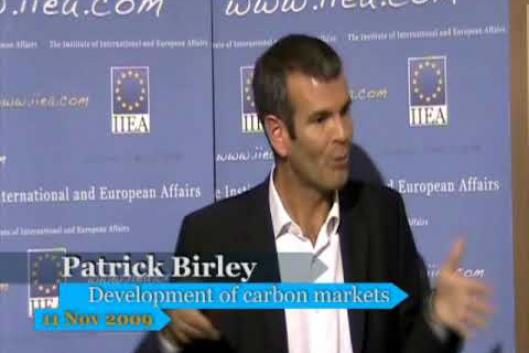Every four years millions of people throughout the world suddenly become football fans. Many of us know that the organizer –FIFA- is a huge and corrupt money-making machine. We also know that football is big business for a large number of highly destructive transnational corporations. We even know that football players are in many cases no more than modern gladiators sold as human commodities in the FIFA market.
Issue 155 – June 2010
OUR VIEWPOINT
COMMUNITIES AND FORESTS
-
29 June 2010At present, the initiative for Reducing Emissions from Deforestation and Forest Degradation (REDD) is rather a collection of proposals and some pilot schemes. However, it is being strongly pushed and at a remarkable speed inside as well as outside the United Nations process, with the aim of including carbon forest in the array of mechanisms for carbon permits and carbon offsets. Over the past two years, national proposals and plans for REDD projects have proliferated involving governments, multilateral organizations, big NGOs and corporations. The World Bank and northern governments including Norway, Australia and Great Britain have created a large fund of some $800 million to finance REDD projects.
-
29 June 2010On 14 and 15 March, the Third Session of the People’s Permanent Tribunal was held in Madrid (Spain). This is an activity promoted by the Bi-regional Europe-Latin America and Caribbean Network “Enlazando Alternativas” (Linking Alternatives). The network was set up in 2004 as a response to the European Union’s (EU) neoliberal trade policy measures in its search to ensure the widest possible access for its transnational corporations to Latin American and Caribbean markets. Furthermore, the network supports the peoples of Latin America and Europe’s resistance to the expansion of European trade.
-
29 June 2010As we reported in October 2009, the Korean steel company POSCO has been granted the opportunity both in India and in Uruguay to occupy territory that is valued by the inhabitants of both countries.
-
29 June 2010The International Work Group for Indigenous Affairs (IWGIA) has issued a report on the indigenous Ayoreo people in Paraguay and the injustices they have been experiencing due to the expansion of ranching, illegal sale of land and extractive industries (1). More than a report, it is an urgent wakeup call that Director of Iniciativa Amotocodie Benno Glauser introduces as follows: Non-indigenous society began to invade the vast territory of the Ayoreo only 50 years ago, with the goal of taking possession of the land.
-
29 June 2010We are witnessing a global process of agribusiness expansion and land grabbing in the South. Through lease, concession, even purchase, corporations or foreign states take over large areas of farmland on a long-term basis to produce staple foods or agrofuels for export. It is estimated that roughly 1,000 investment groups have targeted more than 50 countries in Asia, Oceania, Africa and Latin America (1).
COMMUNITIES AND TREE MONOCULTURES
-
29 June 2010Targeting the media
-
29 June 2010After French industrialist Vincent Bolloré filed two lawsuits against Radio France Inter, both for alleged defamation regarding plantations operated by SOCAPALM (Société Camerounaise de Palmeraies), photographer Isabelle Alexandra Ricq and researcher Julien-François Gerber addressed ten lies typically used to defend Bolloré, one by one.
-
29 June 2010Over the last few years, Uruguay has gained international attention as a result of the drawn-out conflict with Argentina over plans for the installation of two “mega” pulp mills in Uruguay, one by the Finnish company Botnia and the other by ENCE of Spain.
-
29 June 2010Tree plantations owned and operated by Forestal Valdivia S.A., a subsidiary of the Arauco group, have not only been granted certification by the Chilean sustainable forest management system CERTFOR (backed by the international Programme for the Endorsement of Forest Certification or PEFC label), but also chain of custody certification from the FSC (SGS-COC-005376).
GLOBAL EUROPE: IN THE QUEST FOR SOUTHERN MARKETS
-
29 June 2010A group of Latin American social organizations (1) met in Montevideo to examine the Free Trade Agreements (FTAs) that the European Union (EU) signed last May with Central America, Colombia and Peru. Not only are these FTAs a serious threat to the food sovereignty of the peoples, the forests, the region’s main ecosystems and to artisan fisheries, but they will also worsen climate change. The organizations warned that the MERCOSUR (2) countries run the same risks following their decision to re-initiate their negotiations with the EU at the end of June.
CARBON TRADING
-
29 June 2010Patrick Birley, the Chief Executive of the European Climate Exchange, knows a thing or two about carbon trading. He should do. He claims that about 95 per cent of all the carbon traded globally is traded through his exchange. So when he talks about carbon markets, we would do well to listen. Here’s what he has to say about carbon trading: “It doesn’t reduce a single tonne of carbon going into the atmosphere. It’s got nothing to do with it. It’s all about the cap. The cap is the mechanism that produces a declining amount of carbon over the long term going into the atmosphere.”

